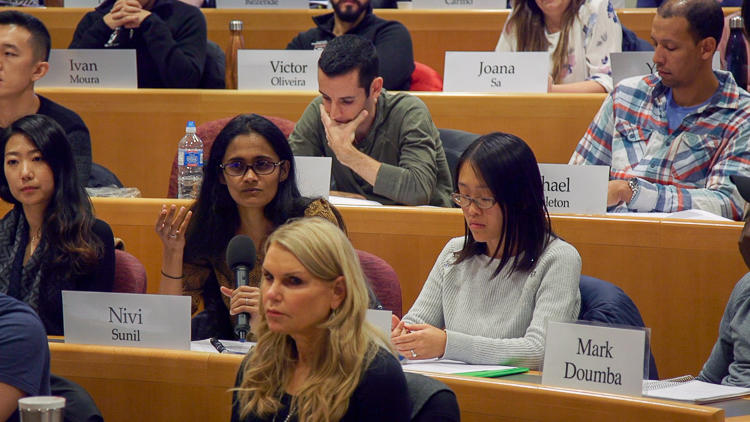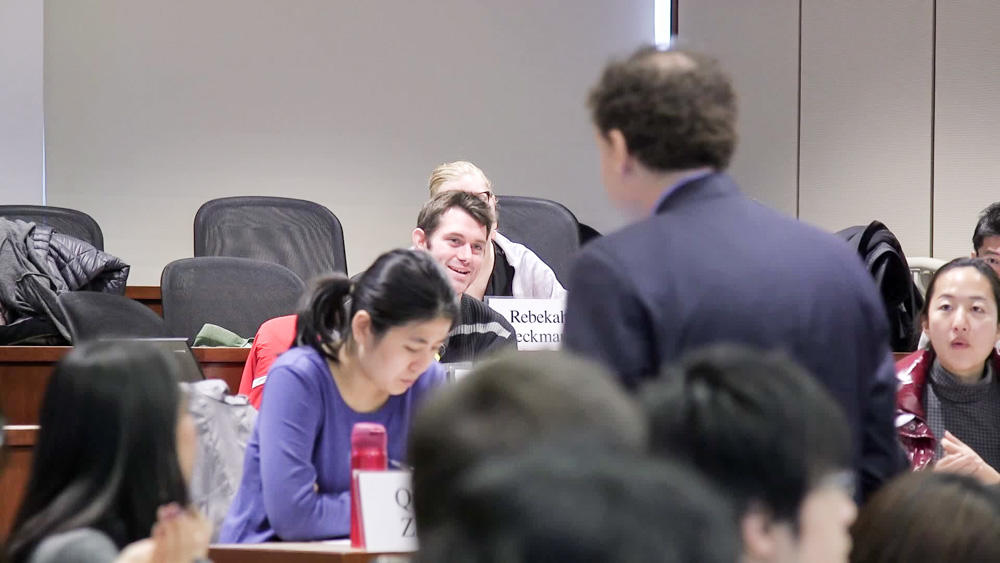Classrooms, especially those at the graduate level, are mosaics of students with wide-ranging backgrounds and areas of expertise. In case-based classes where disciplinary knowledge is situated in context, drawing on this reservoir of expertise can help incorporate more voices into the classroom and enhance case discussions. In this video, Barbara Cockrill’s students discuss the value of working with peers from different disciplinary backgrounds, and Cockrill solicits input from one particular student to make a high-stakes case even more relevant.
Channeling expertise in the room to enhance the case
Instructor
Barbara Cockrill, Harold Amos Academy Associate Professor of Medicine
Student Group
Graduate
School
Harvard Medical School
Course
Homeostasis I
Group Size
40 students
Additional Details
First-year requisite
- Learn about your students. At the beginning of the semester, ask them about their prior studies, employment, and experiences. Use this background information to solicit students’ expertise throughout cases.
- Find opportunities during lessons for students to share their insights from prior experiences. This can enliven cases and build classroom community. It also models a key component of teamwork for students: knowing and utilizing the strengths and expertise of each team member can help students reach the most thoughtful solution.
- Students are not blank slates (National Research Council, 2000). Assessing student knowledge and expertise can help instructors not only assess potential learning challenges; student voices can also be a source of knowledge in the classroom (Sawyer, 2006).
- Harvard Business School provides helpful recommendations and resources for getting to know your students, and their areas of expertise.
- This Faculty Focus blog article provides suggestions for how to take an inventory of student interests and experiences on the first day of class.
- Check out how Instructional Moves featured faculty member Dan Levy gets to know his students and their interests.




